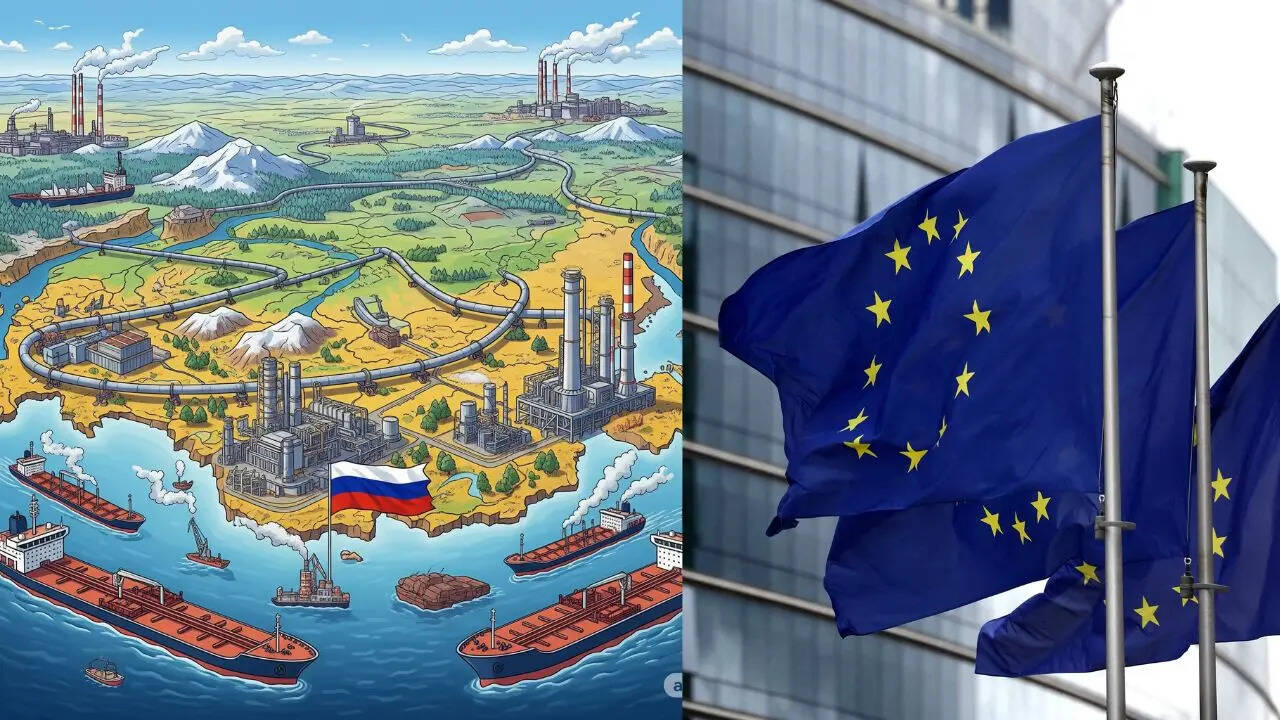
The EU accuses both the firm and the captain of “providing material, technical and financial assistance” to Russia-linked crude oil operations.
In a significant escalation of the European Union’s sanctions targeting Russian oil trade, Intershipping Services Hub Pvt Ltd, the Indian subsidiary of a UAE-based shipping conglomerate, has been placed on the EU sanctions list. Captain Abhinav Kamal, an Indian national commanding the oil tanker Argent, has also been individually sanctioned.
The EU accuses both the firm and the captain of “providing material, technical and financial assistance” to Russia-linked crude oil operations. This includes aiding vessels involved in transporting oil or petroleum products that breach EU restrictions. “This means the assets that Intershipping Services LLC holds in Europe will be frozen, and European citizens and companies cannot make money available to it,” an EU official told ET.
Why it matters: The sanctions come as part of broader efforts by the EU to crack down on Russia’s shadow oil trade, especially as Moscow continues to seek buyers outside the West. These measures are now tangibly impacting Indian ports, refiners, and shipping corridors, particularly due to Russia’s deepening energy ties with India.
According to reports, Captain Kamal becomes the first Indian national sanctioned by the EU in connection with the Russia–Ukraine conflict, with maritime experts suggesting he could face major restrictions within EU-linked maritime networks.
Impact on Indian Businesses: Nayara Feels the Heat India may not formally recognise unilateral sanctions imposed by external jurisdictions, but fallout is already evident. Nayara Energy, which is nearly 49.13 per cent owned by Russia’s Rosneft PJSC, is witnessing a slowdown in port activity.
Sources told Bloomberg that tanker operators are growing wary of calling at Vadinar, where Nayara’s key refinery is based. In one such case, the ship Talara reportedly abandoned a diesel pickup and left the port abruptly following fresh sanctions last week. “Several shipping firms are showing reluctance to deal with Nayara for crude imports and product exports,” the Bloomberg report noted, indicating operational isolation.
Legal and Economic Scope of Sanctions While the sanctions apply only to EU citizens, entities, and jurisdictions, the ripple effects are global due to the EU’s influence in maritime trade. Non-EU firms can technically still do business with the Indian entity, but market risk and reputational concerns often prevent them from doing so.
India, on its part, continues to reject unilateral extraterritorial sanctions. However, financial institutions, insurers, and shipping firms with European exposure often comply de facto to avoid legal consequences.
What Next? With India and Russia strengthening energy and defence ties, and the EU simultaneously expanding its sanctions net, Indian businesses may increasingly be caught in geopolitical crossfire.
The case also sets a precedent for enforcement against individuals and subsidiaries far from the core conflict zones. It remains to be seen whether India will diplomatically protest these sanctions or sidestep them silently as it has in previous similar episodes.